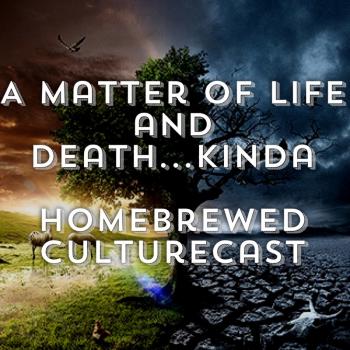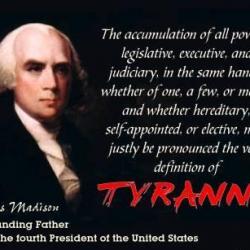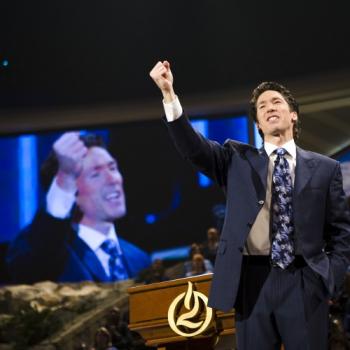Yesterday I wrote an article about a discussion I had with my son about the instability and conflict in the Middle East. Following is a personal reflection to follow up on the article. Read the previous piece HERE.
 In the wake of the Paris attacks, the continuing exodus of Syrian refugees and the growing destabilization wrought ind the wake of ISIS’ chaotic grip in the Middle East, we’re all grasping for answers: How do we respond? What is their endgame? How do we beat them? Who will finally unlock the solution?
In the wake of the Paris attacks, the continuing exodus of Syrian refugees and the growing destabilization wrought ind the wake of ISIS’ chaotic grip in the Middle East, we’re all grasping for answers: How do we respond? What is their endgame? How do we beat them? Who will finally unlock the solution?
The problem is there are no good answers to any of these.
This is why even President Obama sounds beleaguered and half-hearted when peppered by journalists about his plan to defeat the terror network. because the real answer is that he can’t, and no one can. It’s a systemic issue that goes deeper and reaches further in geography and history than anyone can extricate with a sniper, sortie run or ballistic missile.
Plus it’s fueled by the one thing that is more precious than life itself to so many, making it impervious to the threat of weapons of war: ideology.
When people will willingly die for what they believe, there is no threat you can present to deter them. It’s impossible. And to complicate the whack-a-mole strategy of dismantling the network, the greatest fuel for recruitment is when a leader in the group is killed. It further justifies the propaganda used to galvanize a cohort of (generally) young, disaffected and restless men who are longing for a sense of purpose and belonging.
Andu like traditional warfare, they operate from within the homes of innocents, online and in nations all across the world. Were they simply a network of uniformed thugs in Iraq and Syria, that would be a more achievable goal (though we failed at a similar effort in Vietnam). But they live across the Middle East, Southeast Asia, Africa, Western Europe and here in the United States.
On top of this, we have to consider the intelligence necessary to take on this threat. In a recent TIME Magazine article titled “Beating ISIS” David Von Drehle notes that it takes approximately 20 intelligence agents to track and gather useful intelligence on every one terrorist. And yes, our forces, along with those of other cooperating nations, have confounded way more threats than actually have come to full execution. But that doesn’t mean we’re any closer to stopping them.
Our recent efforts to recruit combat forces on the ground in hot zones effectively have failed. We’ve spent tens to hundreds of millions of dollars on sorties to kill a handful of recruits and a few principal leaders at best. But just as we’ve seen now for a quarter century, there are many in the wings ready and willing to take their place.
It’s like the movie Gremlins, but instead of water multiplying the evil creatures, it’s spilling blood.
I’m not saying all of this just to be a downer (though if you’re still reading I’m kind of impressed). The point is that we keep trying what we know, what is politically expedient and what keeps the public and press satiated for long enough for us to think, to raise campaign funds and hopefully to endure another election cycle. But at its heart we’re not even dealing with the real fact that, in addition to ISIS and the likes of them being fairly impossible to defeat, they don’t have to win. In other words, they don’t even have the toppling of the Western World as their immediate aim. Yes, they’d celebrate on our graves if it were possible, but their agenda is destabilization and terror, not victory.
And in that way, they’re already winning.
So the leaden question looms: what do we do? And of course, if any of us could present a satisfying answer, we’d be the president of…well, all the things. But as people of faith and contemplation, I think we have to start with personal reflection. What have we don’t to foment the climate in which such ferocious anger and desperation grows? From what context of tone-deaf cultural and historical ignorance are we operating that keeps trying to overlay contemporary western values and thinking on ancient tribal dynamics that precede us by centuries, if not millennia?
In short, and at the risk of upsetting a good number of people: who the hell do we think we are?
I’m not an isolationist necessarily, but I do believe we’ve bought into a false narrative that we are the ad hoc global police. We need to approach the whole situation with a larger perspective and some socio-historical humility.
Second, we have to consider the power of our own consumption. Our own thirst for a way of life we’ve come to normalize – or worse, feel entitled to – is a major player in the presence of unwelcome industrial, military and political forces in the Middle East.
Finally, we have to think longer term. The unrest and aggression manifesting itself today spans nations, cultures and many, many generations. These problems cannot be bombed out of existence any more than they can be bought or recruited into compliance. Our arrogance n purporting to know how to handle this is a sign of how naive we truly are when it comes to world history.
As I said yesterday, I have no “silver bullet” solutions. But I stand firm in the conviction that what we’ve done, and continue to do, isn’t working. It never will. and the more we pursue this agenda of employing the military-industrial complex to make our problems go away, the more we mortgage our future and its problems, deferring responsibility for our children and theirs to try and unravel.
Christian Piatt is the creator and editor of BANNED QUESTIONS ABOUT THE BIBLE and BANNED QUESTIONS ABOUT JESUS. He has a memoir on faith, family and parenting called PREGMANCY: A Dad, a Little Dude and a Due Date, and Hachette published his first hardcover book, “postChristian: What’s left? Can we fix it? Do we care?” in 2014. His first novel, “Blood Doctrine,” has been optioned by a Hollywood production company for a possible TV series.
Christian is the cofounder and cohost of the Homebrewed CultureCast, a podcast about popular culture, current events and spirituality that has a weekly audience of 25,000 people.
Preorder Christian’s next book, “Not That Kind of Christian: Loving God without being an a**hole,” HERE.
For more information about Christian, visit www.christianpiatt.com, or find him on Twitter (www.twitter.com/christianpiatt) or Facebook.












